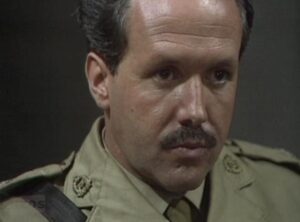1941: The Greek Campaign
April 23, 2023
By AHNZ

To send New Zealanders to be captured and killed in a Mediterranean campaign during a World War was thought such an astute idea that Winston Churchill managed to talk us into it not once but twice. Knowledge of history and a modest set of pattern-recognition skills would suggest teaming up with Australia again for another ANZAC force to do Britain’s dirty work and ‘end the war’ would wind up the same way it had last time. So maybe this isn’t so astute after all? Maybe we shouldn’t do this? Ref. 1915: Evacuation of Gallipoli
“Nah, it’ll be fine.”
Long story short: It wasn’t fine. Our efforts in the Western Agean Sea (Greece) were almost an instant replay of what an earlier generation had done in the Eastern Agea Sea (Gallipoli.) The best part about both campaigns, what we did best, was evacuate.
Between 6 March and 29 April 1941 tens of thousands of soldiers were sent in to reinforce the Greeks against German and Italian invasion so they could be evacuated again within weeks! As soon as we arrived it was obvious we were outmatched and the first thing we did was begin to leave but it was a painful and wasteful misuse of Kiwi lives. According to Wolfe (2007) 291 of our men were killed, 599 wounded, and 1614 captured by the enemy. Some 400 self-evacuated rather than be rescued from the crashing and burning of yet another failed government experiment. It gets worse! The survivors were evacuated to defend Crete which we lost within 2 days! Even more killed, wounded, abandoned, and taken prisoner! And that was the true Anarchist History of ANZAC. The title was unlucky, embarrassing, and never used again. Except, of course, in memorials and ceremonial mantras in our collective delusion to obscure the true nature (horror, exploitation) of our Government. Ref. 1941: Operation Mercury, AHNZ
“The last of the New Zealand forces leave Greece in a hasty evacuation to Crete that leaves thousands behind. The campaign has seen 261 New Zealanders killed, 287 wounded and 1856 taken prisoner. At least 400 will find their own way out of Greece.” – Dench (2005)
“…organised and despatched so rapidly that even senior officers in the first flight were not told of their destination until they were crossing the Mediterranean….At the end of April more than 50,000 troops were evacuated, with many of them sent to garrison the island of Crete. By the end of the brief Greek campaign, nearly 300 New Zealanders had been killed and more than 1800 taken prisoner.” – NZHistory.govt
“The Australian prime minister, Robert Menzies,…reluctantly gave his approval…haunted by the memory of the Battle of Gallipoli, and was highly suspicious of another of Churchill’s plans for victory in the Mediterranean. On 9 March, New Zealand’s Prime Minister, Peter Fraser, likewise gave his approval to redeploy the New Zealand division from Egypt to Greece, despite his fears of another Gallipoli. As he put it in a telegram to Churchill, he “could not contemplate the possibility of abandoning the Greeks to their fate” which “would destroy the moral basis of our cause”.” – Wiki
“Once the Germans had the high ground, which they achieved on the second day of trying, all the New Zealand-led defenders could do was slowly retreat and painfully evacuate. For many, Trusting The State was their last mistake.” – 1941: Operation Mercury, AHNZ
“But the New Zealanders’ first major engagement with the enemy had proved extremely costly, with 291 dead, 599 wounded (212 of them captured) and 1614 prisoners of war.” – Wolfe (2007)
“The expedition to Greece had a fairy-tale quality, and many of those who survived it unscathed and got safely back to Egypt would not have missed it for worlds; but it made no strategic sense. A challenge on land to the German colossus which bestrode Europe when Britain and her Dominions stood alone, their resources dangerously stretched, invited disaster.” – p2437, New Zealand’s Heritage (1971)
“Labour, in 1938, had not prepared New Zealand for war at all…Our politicians were being told but they were not listening.” – 1938: The Affair Of The Four Colonels, AHNZ
 The weak men who were led to slaughter in the Gallipoli Campaign and the Greek Campaign (those who lived) did not remain weak in either case: They made themselves hard from the experience and effective. New Zealanders at home, likewise, had their naivety bubbles burst in 1915 and 1941. War was not a fairytale adventure soon over. This was going to be tough and so must we.
The weak men who were led to slaughter in the Gallipoli Campaign and the Greek Campaign (those who lived) did not remain weak in either case: They made themselves hard from the experience and effective. New Zealanders at home, likewise, had their naivety bubbles burst in 1915 and 1941. War was not a fairytale adventure soon over. This was going to be tough and so must we.
As Kipling has observed, the Anglo Saxon is slow to hate and Anglo-Zelandians are no different. Suffering and loss are the persisting precursors that turn a country of sheep into a nation of lions. We entered the War in an era of Savage Slave Culture that included George Bernard Shaw counseling Communism, our King flaking out and quitting his post over a woman, and the slow dying in office of the sentimental old man Prime Minister Michael Savage. After Greece and Crete the New Zealanders reached within and located their guts and spine again¹. Men like Captain Charles Upham showing them where to look. “It was not preached to the crowd. It was not taught by the state. No man spoke it aloud, When the Saxon began to hate.” Ref. The Wrath of the Awakened Saxon, Rudyard Kipling.
Bernard Freyberg, General Officer Commanding (GOC) of the New Zealand Expeditionary Force, had his inner-Saxon awakened too. In 1940 he intended to hold the coming ANZAC Day service on Gallipoli Peninsula with veterans like himself conducted there by navy cruiser like some picnic². A year on, AZAC Day 1941 was the beginning of quite the reverse: Retreat. It continued through Crete and led to a personal crisis that the General emerged from as a new man. A new New Zealand man. According to biographer, Stevens, Freyberg re-discovered himself as a New Zealander after the retreat back to Egypt. He shed his stiff British Officer persona and threw out the book (which he literally wrote) on Unit Administration and led New Zealanders to honor and victory.
“The evacuation began in the very early hours of April 25- Anzac Day- from a beach near Marathon. Many of the retreating troops drove through cheering crowds in the streets of Athens, a poignant and memorable farewell from a brave people.” – p2439, New Zealand’s Heritage (1971)
“When the Division and its commander were together again in Egypt, a change had come over the picture. General Freyberg had lost all trace of the peacetime British Army officer and had in Geoffrey Cox’s words “rediscovered himself as a New Zealander.” In fact he had become almost more of a New Zealander than the troops themselves. There would be no more attempts to mould the force into a copy of a British division, either in the field or out of it. He was now one of us in every way.” – p34, Stephens (1965)
“They were not easily moved, They were icy — willing to wait, Till every count should be proved, Ere the Saxon began to hate.” – Kipling
“Only at this point did our warriors snap out of their menial position and begin to emulate Captain Charles Upham by behaving as an Honour Culture and becoming winners. On 27 June, 1942, we powered out of the German trap and started holding our own in combat and then chased General Rommel down.” – 1942: Coming and Going, AHNZ
What good did the Greek Campaign do except to extinguish Churchill’s ANZAC folly we should have never have been suckered into twice? Or, to give the ANZACs something to avenge since we don’t seem to be able to find our feet without first being knocked off them?
True, New Zealanders did rescue and protect the Greek King from the fascist Germans and Italians. Despite the propaganda from Churchill and Fraser about the ‘morally based’ puppet this king was every bit as bad as the enemy! He was yet another fascist totalitarian dictator but he was our fascist totalitarian dictator. New Zealanders formed a bodyguard and ‘rescued’ King George II on the evacuation trail through Greece and Crete more or less like luggage against his own will. Not exactly the moral cause worthy of lions. We were, at that point, being told what to do by twits. And, obeying like good little slaves. That made us weak.
Before the Great Rediscovery and Awakening the Ango-Zelandian was not in charge of his own fate. Neither the Government nor Freyberg were fully and frankly consulted about our role in Greece. Troops sent to engage didn’t even know where they were going or what to prepare for until they got there and when they did, as we have seen, treated it like a game or a fairy-tale holiday initially. Prime Minister Fraser was upset that New Zealand was being so taken for granted that the first of our troops were sent to Greece without Freyberg or Fraser being consulted. When they did at last find out, British Command denied it!³
This shows how deeply into Savage Slave Culture we were until mid-1942. The experience, along with the Fall of Singapore in February that year, propelled New Zealand into the new era; Upham Honor Culture. Ref. Slave Culture becomes Honour Culture, AHNZ
—
1 New Zealand’s times of greatness are always preceded by Wokeness. Political Correctness, Victimhood Culture, are the ignition the Kiwi Egregore requires every time it gets a power-up
2 Ref. p28, Freyberg, VC.: The Man, William Stevens (1965)
3 p2437, New Zealand’s Heritage (1971)
Image ref. Bold suicide mission to Greece pays off in Hollywood movie, The Guns of Navarone (1961)
Ref. 1941: Operation Mercury, AHNZ
Ref. Essential Dates; Dench (2005)
Ref. With Honour, Our Army, Our Nation, Our History, Richard Wolfe (2007)
2 thoughts on "1941: The Greek Campaign"
Leave a Reply
 Like Comment Share
Like Comment Share






Am I just a slave. Conscription into Army, Mandate to take the Jab (agree or lose your job and not allowed out of the street etc) .
I was gungho about War when young and full of the teste drug, I always puzzled as to why my returned relatives were so quiet about the war, they saw the horrors and loss of mates for no good reason.
To be clear a good reason , in my view is protecting your home and country.
Well, if I’m right about New Zealand’s great times coming directly after Slave Culture ones then we’re in for a really great next-decade!